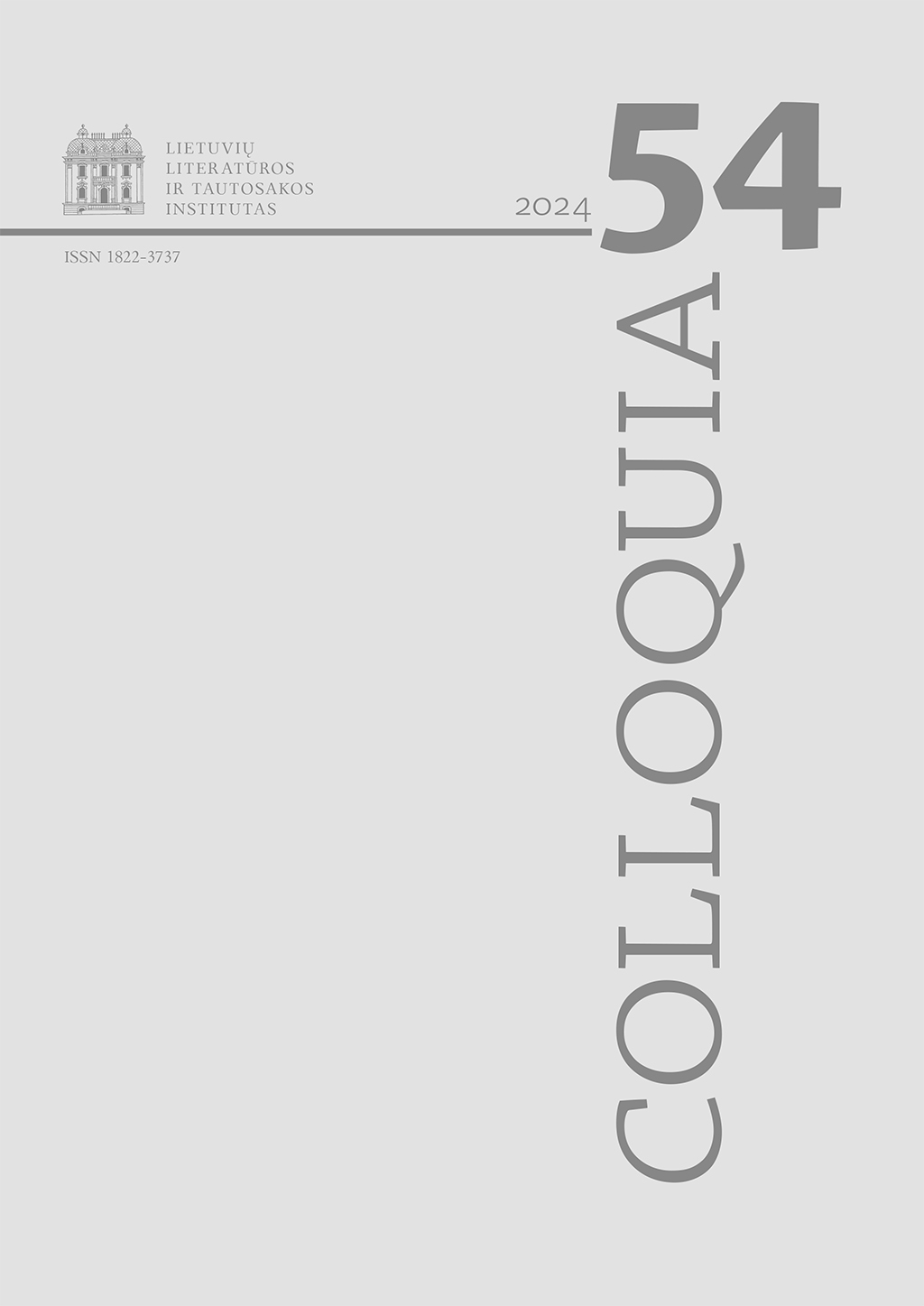Maistas kaip grotesko įrankis šiuolaikinėje lietuvių ir latvių prozoje
Santrauka
Straipsnyje analizuojama grotesko ir gastropoetikos sąveika šiuolaikinėje lietuvių ir latvių literatūroje, daugiausia dėmesio skiriant latvių autoriaus Gunčio Berelio apsakymui „Es nekad nerunāju muļķības“ („Aš niekada nekalbėjau kvailysčių“, 2017) ir lietuvių autorės Ievos Dumbrytės romanui Šaltienos bistro (2021). Abiejuose tekstuose groteskiniai vaizdiniai, susiję su maistu, kanibalizmu ir kūno transformacijomis, atlieka svarbų naratyvinį vaidmenį ir koduoja socialinę bei politinę kritiką. Identifikuojamas grotesko porūšis – gastronominis groteskas (gastrogroteskas), kuris iki šiol Baltijos šalyse yra netyrinėta grotesko raiškos niša. Remiantis Bachtino pasiūlyta grotesko kaip virsmo metafora, teigiama, kad kiaulės ir mėsos simbolika šiuose tekstuose įkūnija kraštutinį žmogaus nužmoginimą, pasireiškiantį tiek darbo rinkoje (Dumbrytė), tiek politinėse sistemose (Berelis). Groteskas atlieka įprastinę funkciją ta prasme, kad apverčia tradicinius literatūrinius estetikos kanonus, o kartu suteikia šokiruojančią perspektyvą šiuolaikinėms aktualijoms.

Šis kūrinys yra platinamas pagal Kūrybinių bendrijų Priskyrimas 4.0 tarptautinę licenciją.
Atsisiuntimai
Skaitomiausi šio autoriaus(ų) straipsniai
- Laura Laurušaitė, Imagologija kaip instrumentas (e)migracinio identiteto specifikai tirti , Colloquia: T 32 (2014)
- Laura Laurušaitė, Literatūrinės baltistikos kompendiumas , Colloquia: T 42 (2019)
- Laura Laurušaitė, Vertybiniai pokyčiai šiuolaikinėje emigrantų literatūroje: turėti, būti ar atrodyti? , Colloquia: T 41 (2018)
- Laura Laurušaitė, Benedicts Kalnacs, Apie regioninę ir tarptautinę integraciją , Colloquia: T 36 (2016)
- Laura Laurušaitė, Lietuvių emigracinės aksiologijos peizažas , Colloquia: T 35 (2015)
